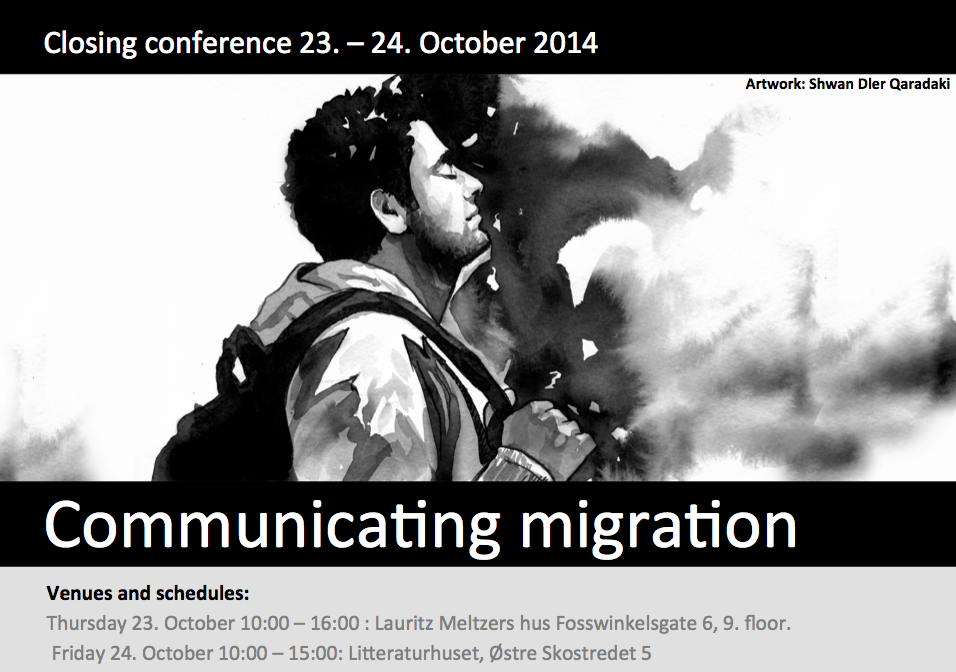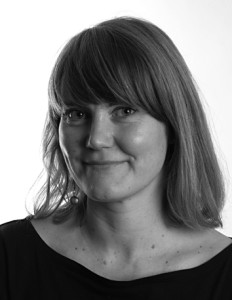COMMUNICATING MIGRATION SEMINARS: ESPEN HELGESEN – “Your dad is looking for you” – Children’s perspectives on state intervention in immigrant families in Norway
Several recent international news stories have described state-initiated forced separation of children and parents in Norway, illustrating how local decisions in the Child Welfare Service can have widespread ramifications outside the families involved. In this paper I draw on ethnographic fieldwork among immigrant families in Kristiansand, Norway, to show how a group of children responded when one of their friends suddenly disappeared. The secrecy surrounding the inner workings of the Child Welfare Service led the children to frame the incident as a “kidnapping”, and several children expressed fear that they, too, would be separated from their families. Frustrated with the lack of an explanation of what had happened to their friend, the children turned to online worlds, where they could express their fears and concerns by sharing artwork with friends outside the adult gaze.
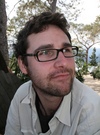 Espen Helgesen is a PhD candidate at the Department of Social Anthropology, University of Bergen, currently finishing his thesis on technology-mediated sociality and self-formation among children of immigrants in Norway.
Espen Helgesen is a PhD candidate at the Department of Social Anthropology, University of Bergen, currently finishing his thesis on technology-mediated sociality and self-formation among children of immigrants in Norway.
Communicating Migration Seminar Series IMER Bergen spring and autumn 2014
The IMER seminar series for 2014 will cover how migration and ethnic relations are communicated in every-day encounters, in mass and social media, in politics and in teaching at the universities. Has the way people talk about migration and migrants in different social contexts changed over time, and in which ways has it changed? How does migration theory and research fit in with other topics and theories in the social sciences, and how do results from migration research inform public debate and policy development? Communicating migration will be discussed from various angles in our seminar series on international migration and ethnic relations during spring and autumn 2014. We welcome papers that touch upon this broad theme from different angles. Historical analyses of change over time in regard to politics and public debate, research foci and disciplinary concerns are specifically welcomed. The seminar series will end with a two-day conference in October/November 2014.
Nando Sigona – The politics of refugee voices: representations, narratives and memories
This paper reflects on existing debates surrounding the politics of ‘refugee voices’ by examining the relationship between representations, narratives, and memories of refugees’ experiences. Drawing on literature framed by post-structuralist and critical theories, the chapter problematizes assumptions regarding the existence of ‘a refugee voice’ on the one hand, and the extent to which academic and policy discourses often fail to listen to or to hear such voices on the other. It does so by identifying different configurations of the production and consumption of emic narratives of forced migration and displacement (that is, produced by forced migrants themselves), exploring the factors shaping these narratives and the embedded power relations that permeate them. In particular, the paper explores the practices and spaces which refugees enact and embody to contest the processes which lead to the silencing and marginalization of their narratives and experiences. To do so, the chapter is divided in three main sections which in turn address different yet interlinked manifestations of the ‘refugee voice’.
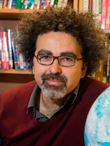 Nando Sigona is a lecturer and Birmingham Fellow at the University of Birmingham. He is also Research Associate at the Centre on Migration, Policy and Society (COMPAS) and Refugee Studies Centre, both at the University of Oxford. His research interests include: statelessness, diasporas and the state; Romani politics and anti-Gypsyism; ‘illegality’ and the everyday experiences of undocumented migrant children and young people; and governance and governmentality of forced migration in the EU.
Nando Sigona is a lecturer and Birmingham Fellow at the University of Birmingham. He is also Research Associate at the Centre on Migration, Policy and Society (COMPAS) and Refugee Studies Centre, both at the University of Oxford. His research interests include: statelessness, diasporas and the state; Romani politics and anti-Gypsyism; ‘illegality’ and the everyday experiences of undocumented migrant children and young people; and governance and governmentality of forced migration in the EU.
His work has appeared in a range of international academic journals, including Sociology, Social Anthropology, Journal of Ethnic and Migration Studies, Identities and Ethnic and Racial Studies. He is one of the editors of the Oxford Handbook on Refugee and Forced Migration Studies (Oxford University Press 2014), Associate Editor of Migration Studies, a refereed journal by Oxford University Press, and co-author of Sans Papiers. The social and economic lives of undocumented migrants (Pluto Press, 2014).
Rolf Halse: Muslim characters in the television serial 24
The presentation will centre on my PhD thesis – a thesis that I according to plans will defend 7 November this year at the University of Bergen. The thesis presents an examination of the US television serial 24’s representation of Muslim characters, and it explores to what extent the perception of these characters can be determined by the cultural and ethnic belonging of the audience. The main reason for choosing to study 24 exclusively is that after 9/11 the serial played a central role in the public debate about whether Muslims are being stereotyped in US television entertainment. Hence, I will discuss whether the critics of 24 have a valid point with regards to the show’s portrayal of negative stereotypes. I will also assess to what extent the serial’s effort to introduce Muslim counter-stereotypes proved to be an adequate response to the criticism.
 Rolf Halse is a Ph.D. Candidate at the Department of Information Science and Media Studies, at the University of Bergen. His research interests lie in popular culture, media audiences and the politics of representation. Halse has published his work in renowned media studies journals such as Critical Studies in Television: the International Journal of TV Studies, Journal of Arab and Muslim Media Research and Nordicom Review.
Rolf Halse is a Ph.D. Candidate at the Department of Information Science and Media Studies, at the University of Bergen. His research interests lie in popular culture, media audiences and the politics of representation. Halse has published his work in renowned media studies journals such as Critical Studies in Television: the International Journal of TV Studies, Journal of Arab and Muslim Media Research and Nordicom Review.
Contact: Rolf Halse, Department of Information Science and Media Studies, University of Bergen, Box 7802, 5020, Bergen, Norway. E-mail: rolfhalse@infomedia.uib.no
The conference is open: No registration
The IMER seminar series for 2014 have covered how migration and ethnic relations are communicated in every-day encounters, in mass and social media, in art, in politics and in research and teaching at the universities. Has the way people talk about migration and migrants in different social contexts changed over time, and in which ways has it changed?
How does migration theory and research relate to other topics and theories in the social sciences, and how do results from migration research inform public debate and policy development? What are the challenges we encounter in communicating migration?
Thursday October 23. 2014
Lauritz Meltzers hus Fosswinkelsgate 6, 9. floor. (in English)
10.00 : Teaching race, Racism and Ethnicity: Education, politics and practice John Solomos
11.00: Studying race and discrimination in a colorblind society: the case of France Patrick Simon
12.00-13.00 Lunch
13.00: Migration and Integration in Norwegian Sociology Mette Andersson
13.30: Distinction Home and Abroad in Migration Research Tor Aase
14.00: Migration and Social Theory Randi Gressgård
14.30: Migration in Literature Studies Lene Johannessen
15.00:Migration in Political Science Hakan G. Sicakkan
15.30: Concluding Discussion
Friday October 24. 2014
Literature house Bergen, Østre skostredet 5, 2nd floor (in Norwegian)
10:00 – 10:15 Velkommen IMER leader Synnøve Bendixsen
10:15 – 10:40 IMDI: Fakta om innvandring til Norge v/ regionsdirektør Bente Blytt
10:45 – 12:00 Norsk-svensk innvandringskrangel– hva handlet den om, og hvor står debatten i dag? v/ Tidl. Statssekretær Ketil Rakes (N) og forfatter Henrik Arnstad (S)
12:00 – 13:00 Pause
13:00 – Å kommunisere migrasjon gjennom film og kunst. Diskusjon med kunstnerne Thomas Østbye og Shwan Dler Qaradaki sammen med antropolog Marry-Anne Karlsen.
14.00 Utstilling og film: Imaging Immanuel (2011. Regissør: Thomas Østbye. 52 min)
IMER Bergen, International Migration and Ethnic Relations, is a multidisciplinary research unit at Uni Research Rokkansenteret and the University of Bergen. The aim of IMER Bergen is to contribute to research-based knowledge about international migration, not least related to European countries, including the consequences of immigration and emigration for societies. IMER Bergen started as a unit at the University of Bergen in 1996, and has since then been an important contributor, both nationally and internationally, to the migration research field. IMER is a prioritized research area at the Faculty of Social Sciences, University of Bergen.
IMER online: http://imer.w.uib.no
Visit IMER on Facebook
For contact, please send email to imer@uni.no
Additional information:
A short introduction to the debate on Friday:
http://www.vg.no/nyheter/meninger/sverige/kronikk-folkhemspopulismen/a/23297613/
Om diskusjonene om migrasjon i kunst og film:
IMER Bergen har som en del av Communicating Migration konferansen invitert to kunstnere til å snakke om sitt arbeid. Begge kunstnerne jobber med migrasjon som tema og i samtalen vil vi ta opp spørsmål som: Hvordan kan migrasjon kommuniseres gjennom kunsten? Hva er forholdet mellom politikk og kunst? Er det likheter mellom kunst og samfunnsfagene? Hvilke dilemmaer star man ovenfor når man representerer andre mennesker gjennom kunst, og hvordan kan man løse slike dilemma. Kan kunsten gi mennesker en stemme?
I foredraget vil antropolog Mary-Anne Karlsen snakke med kunstnerne Thomas Østbye og Shwan Dler Qaradaki.
Thomas Østby, kjent for å ha laget den prisbelønte filmen Imaging Emanuel som vi vises etter samtalen. Østby har også en rekke andre arbeider som har fått anerkjennelse både nasjonalt og internasjonalt. Les mer: http://www.plymserafin.com
Shwan Dler Qaradaki levde i mange som papirløs i Norge selv. Dette har preget hans kunstneriske uttrykk der han er opptatt av tematikk som flukt, konflikt, identitet, tilhørighet og mangfold. Les mer: http://dlerqaradaki.tumblr.com/
Film: Imaging Emanuel
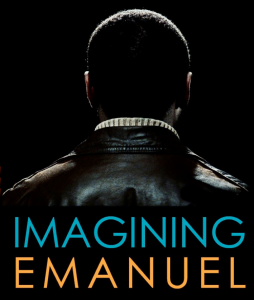 Emanuel har ukjent identitet og oppholder seg illegalt i Norge. Han kom til landet i 2003, men ønsker ikke å leve som illegal, og har forsøkt å få returnere til sitt hjemland uten hell. Han hevder å komme fra Liberia, men norske myndigheter hevder derimot at Emanuel kommer fra Ghana, og har tvangssendt ham dit to ganger. Hver gang har Ghana returnert ham til Norge med beskjed om at han ikke er Ghaneser. Emanuel er dermed dømt til et liv i limbo, uten oppholdstillatelse og rettigheter, men også uten utreisemulighet. Thomas Østbye tilnærmer seg Emanuel ved hjelp av en rekke forskjellige dokumentarsjangere, og de forskjellige avbildningene gir oss ulike inntrykk av den samme mannen. Hvem er Emanuel? Hva er identitet? Hvordan kan identitet avbildes? Hvem besitter sannheten?
Emanuel har ukjent identitet og oppholder seg illegalt i Norge. Han kom til landet i 2003, men ønsker ikke å leve som illegal, og har forsøkt å få returnere til sitt hjemland uten hell. Han hevder å komme fra Liberia, men norske myndigheter hevder derimot at Emanuel kommer fra Ghana, og har tvangssendt ham dit to ganger. Hver gang har Ghana returnert ham til Norge med beskjed om at han ikke er Ghaneser. Emanuel er dermed dømt til et liv i limbo, uten oppholdstillatelse og rettigheter, men også uten utreisemulighet. Thomas Østbye tilnærmer seg Emanuel ved hjelp av en rekke forskjellige dokumentarsjangere, og de forskjellige avbildningene gir oss ulike inntrykk av den samme mannen. Hvem er Emanuel? Hva er identitet? Hvordan kan identitet avbildes? Hvem besitter sannheten?
Mistillitens migrasjon: Europeisk sør-nord mobilitet i kjølvannet av krisa
Tema for innlegget er den nye Europeiske sør-nord migrasjonen. Den empiriske analysen er basert på dybdeintervjuer med noen av dem som har reist fra Spania til Norge etter kriseåret 2008. Innlegget vil belyse hvordan sør-nord migrasjonen i kjølvannet av krisa er mer enn en desperat flukt fra arbeidsledighet i hjemlandet. Den vidtrekkende mistilliten til det politiske systemet og følelsen av en dyptgripende håpløshet i hjemlandet er viktige migrasjonsfaktorer i tillegg til jobbmuligheter for dem som kommer til Norge.
Susanne Bygnes (phd) er postdoktor ved universitetet i Bergen. Hun leder det fireårige prosjektet Labour Migration in Uncertain Times: Migration from Spain to Norway after 2008, finansiert av forskningsrådets VAM-program. Hun har publisert en rekke internasjonale artikler på tema som mangfold og likestilling, blant annet Ambivalent Multiculturalism (2012) i tidsskriftet Sociology.
In recent years, a large number of Syrian refugees have settled in Europe. In the media, most of the debate concerning these refugees has been about how they impact their host societies. But how does this large Syrian diaspora impact politics in Syria itself?
For this IMER lunch seminar, we will be joined by Amany Selim and Espen Stokke, PhD candidates at sociology and comparative politics at UiB. They both do research projects where they explore the engagement of Syrian diaspora activists, and how these activists try to make a difference in the homeland. With their work on the Syrian case, they are hoping to contribute to the growing body of literature that attempts to bridge social movement theory and diaspora politics.
In the presentation, Selim and Stokke will give a brief overview of the field: What do we know about the activism of the Syrian diaspora? They will also present their own projects, and what they wish to add to the field.
‘Crimmigration’ has become a critical “catch all” concept for legal scholars, criminologists, and sociologists alike. The concept describes the way two previously separate state control spheres – border control and crime control – influence each other and are part of the same control mechanism experiences and developments. This concept, for example, helps understand Trump’s effort to legitimize the tightening of immigration policy. It refers to both the protection of American economy and jobs and the explicit intent to protect American citizens from terrorists, rapists, and gang members. For this IMER lunch seminar, Synnøve Jahnsen from Rokkansenteret will talk about the usefulness of crimmigration as a concept in other settings. She will draw on empirical examples from her research on prostitution and human trafficking, Norwegian labour market crime policies, and the policing of outlaw motorcycle clubs and youth gangs in Australia and Europe. She will also use the opportunity to promote her new co-edited book “Criminal Justice in the Era of Mass Mobility” and highlight some of the methodological challenges faced by researchers in her field.
A light lunch will be served. All welcome!
 Synnøve Jahnsen is a postdoctoral research fellow at Rokkansenteret where she specializes in the sociology of law and criminal justice.
Synnøve Jahnsen is a postdoctoral research fellow at Rokkansenteret where she specializes in the sociology of law and criminal justice.
Non-governmental organizations (NGOs) work closely with refugees by providing services and assistance. However, refugees might also be subjected to misconduct by NGOs. In such a scenario, how can NGOs be held accountable for wrongful acts?
For this IMER lunch seminar, Marianne Nerland from the Faculty of Law at UiB will present preliminary findings from her PhD project which explores recourses available to refugees seeking justice against NGOs. By drawing on interviews conducted with refugees as well as aid workers in Kakuma refugee camp in Kenya, Marianne will argue that there are serious legal obstacles that refugees face when wanting to file complaints against NGOs. This case highlights the need for an enhanced structure for NGO accountability in refugee camps.
A light lunch will be served! All welcome!
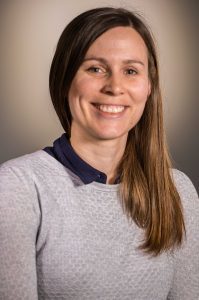 Marianne Nerland is a PhD candidate at the Faculty of Law, UiB
Marianne Nerland is a PhD candidate at the Faculty of Law, UiB
Since the refugee reception crisis in 2015, asylum seekers and refugees have often been at the centre of public and scholarly debate. However, the focus has frequently been on the problems they bring about for host countries. Less attention has been placed on asylum seekers’ aspirations, dreams and plans after arrival. Yet these are meaningful to study given that aspirations can have a significant impact on people’s future trajectories and hence, the ways they incorporate into their new homes. Furthermore, desire, despite having a strong agentic nature, is deeply entangled in the social structures and discourses that newcomers are surrounded by.
In this seminar, Zubia Willmann, will be presenting her article in which she explores how the aspirations of women who came to Norway as asylum seekers change over time, the elements that may be involved in such changes as well as how these women go about pursuing their aspirations. She draws on intermittent fieldwork for one and a half years (2017-2019) in which she followed women seeking asylum in Norway, from the stages in which they lived in asylum centres to the early stages of settlement in a Norwegian municipality.
A light lunch will be served! All welcome.
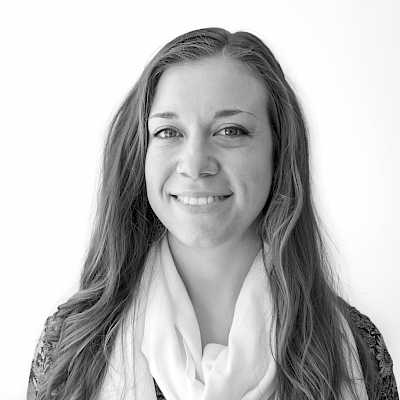 Zubia Willmann is a currently a PhD candidate at VID Specialized University, Stavanger with a project exploring how women seeking asylum in Norway go about starting their life in their new home. She has an interdisciplinary background, her main fields of interest being migration studies but also gender and religion studies among others. She has been recently a visiting scholar at the Migration and Diversity Centre at the Vrije Universiteit in Amsterdam. Zubia is also a member of the IMER Junior Scholars Network.
Zubia Willmann is a currently a PhD candidate at VID Specialized University, Stavanger with a project exploring how women seeking asylum in Norway go about starting their life in their new home. She has an interdisciplinary background, her main fields of interest being migration studies but also gender and religion studies among others. She has been recently a visiting scholar at the Migration and Diversity Centre at the Vrije Universiteit in Amsterdam. Zubia is also a member of the IMER Junior Scholars Network.
There is a deep-rooted cultural belief that encounters between strangers in local settings can bring about social change. Mette Strømsø, a researcher at the Sociology Department UiB, brings this aspect to the forefront in her study of local community initiatives established in the wake of the refugee influx in 2015. Mette will present her co-authored article with Susanne Bygnes whereby they strive to unpack the promise, inherent contradictions and transformative potential of the facilitated encounters in local communities where newcomers settled. The reference to Karen Blixen’s short story Babette’s feast indicate the cultural resonance of the promise in the facilitated encounters between newcomers and permanent residents.
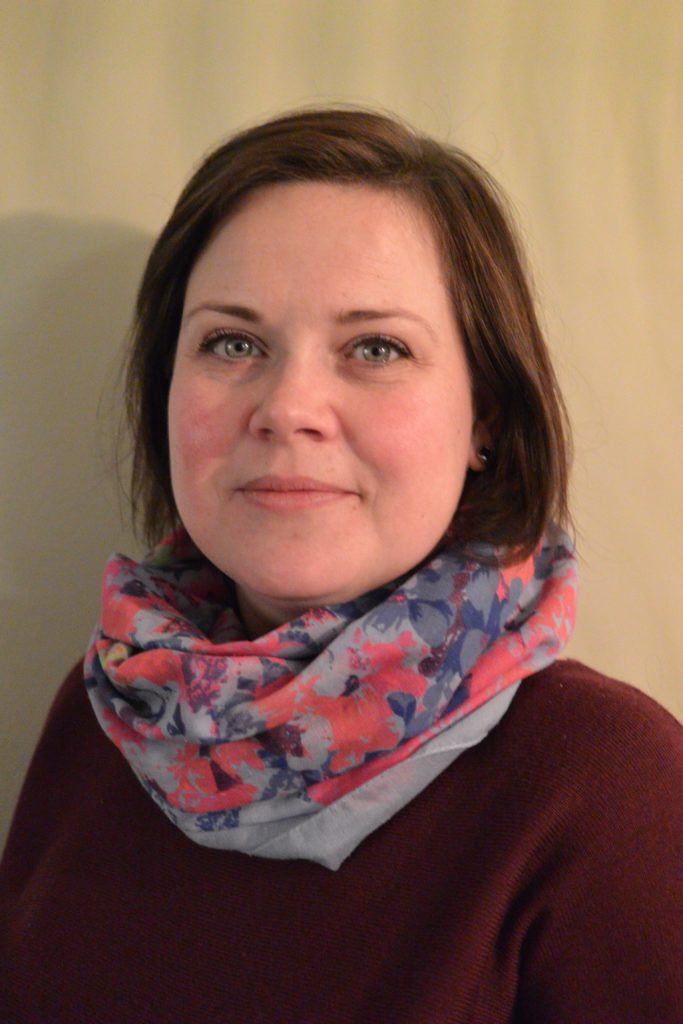 Mette Strømsø is a researcher for IMEX at the department of Sociology, UiB. She holds a PhD in Human. Her research interests fall at the intersection of political geography and social and cultural geography, with a focus on everyday nationhood and especially the reconciliation between nation and diversity.
Mette Strømsø is a researcher for IMEX at the department of Sociology, UiB. She holds a PhD in Human. Her research interests fall at the intersection of political geography and social and cultural geography, with a focus on everyday nationhood and especially the reconciliation between nation and diversity.
Join us on Zoom

